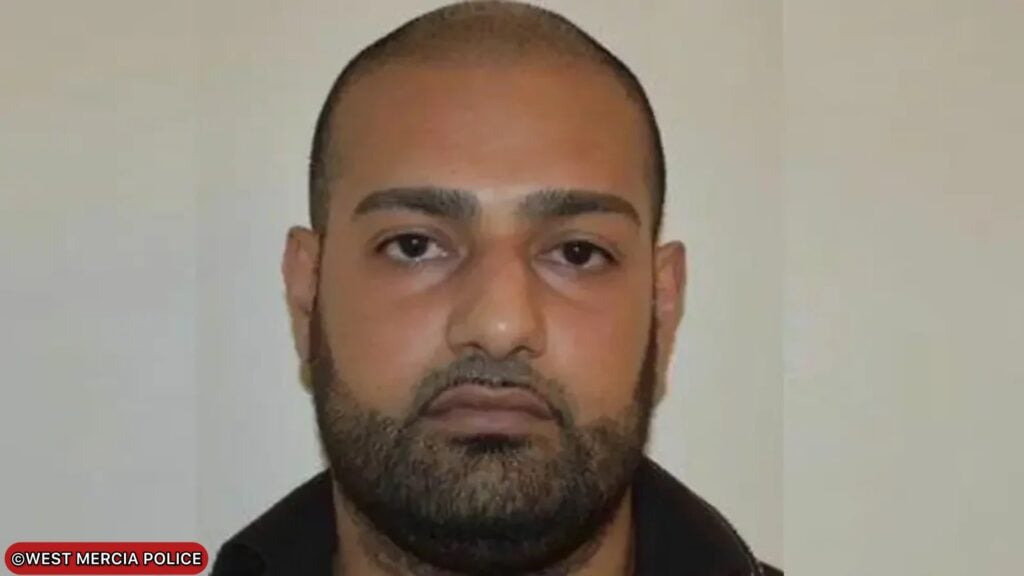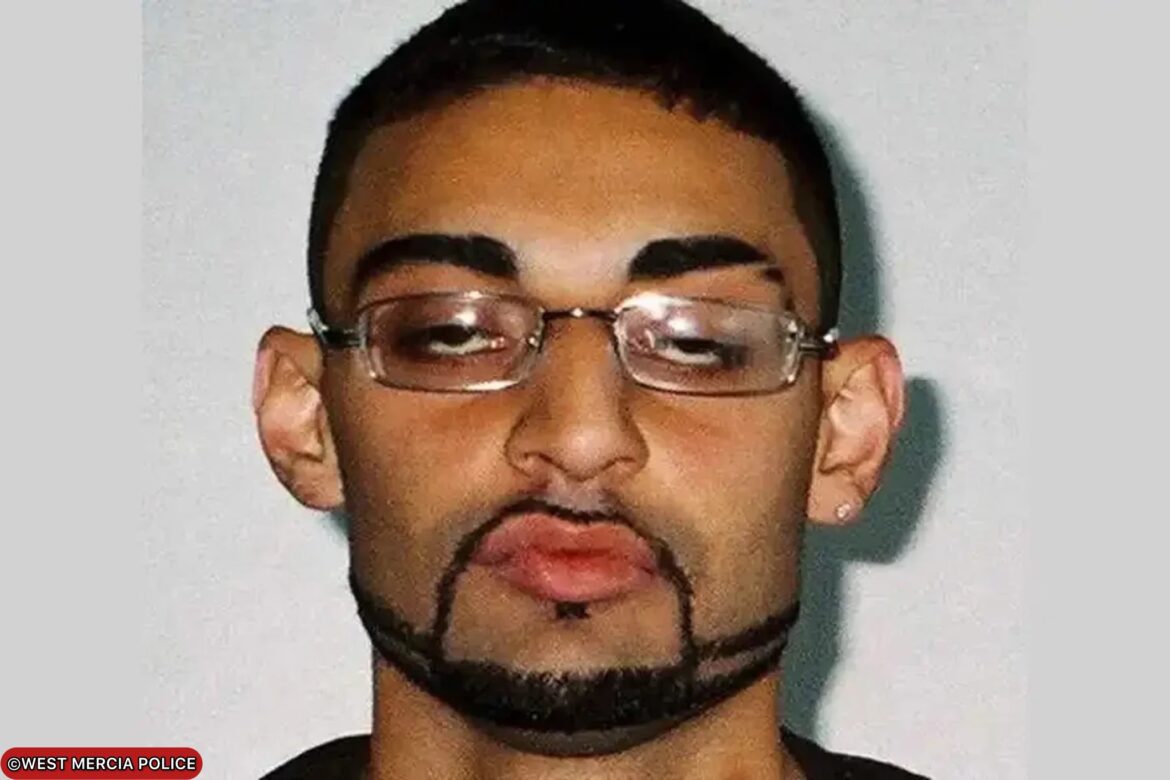The ringleader of a grooming gang that sexually exploited up to 100 girls in Telford could be freed from prison within months, prompting outrage from politicians and campaigners.
Ahdel Ali, 38, who headed a gang that systematically abused vulnerable teenagers as young as 13, is back in the parole process after being recalled to prison in 2021 for breaching his licence conditions. The married abuser had been freed in 2020 after serving just eight years of a 26-year extended sentence handed down in 2012.
Ali led the trafficking operation alongside his brother Mubarek, nicknamed “Max,” and five other men between 2006 and 2009 in Telford, Shropshire. The gang plied their victims with food, alcohol, cannabis and money before forcing them into prostitution and subjecting them to horrific sexual abuse.
Scale of Abuse
The Ali brothers’ gang was part of what became known as one of Britain’s worst grooming scandals. Telford saw up to 1,000 girls abused over four decades, with the town recording the third highest number of child sexual offences in the UK, according to Home Office data from 2015.

The gang’s victims, who they referred to using derogatory terms, were groomed with promises of gifts and affection before being trafficked around Britain for sexual exploitation. The abuse took place at various locations including a Wellington restaurant where the brothers worked.
During the eight-week trial at Stafford Crown Court in 2012, the court heard harrowing evidence of how the gang systematically targeted vulnerable teenagers. Both brothers were married at the time they committed their offences.
Prison Sentences and Early Release
Ahdel Ali received a 26-year extended sentence in 2012, comprising 18 years’ immediate custody with an additional eight-year period on licence. His brother Mubarek was jailed for 22 years – 14 years’ immediate custody and eight years on licence – for offences including controlling child prostitution and trafficking for sexual exploitation.
Despite the severity of their crimes, Mubarek was released automatically in November 2017 after serving less than half his sentence. He was recalled to prison in June 2018 for breaching licence conditions. A parole hearing in May 2022 refused his release, with the panel finding “no evidence to suggest that his level of risk towards others had reduced.”
Last year, Mubarek received an additional 12-year sentence after another brave victim came forward. Judge Peter Barrie told him: “You have shown no remorse at all. There continues to be a high risk that you may cause serious harm to young females through the commission of further offences against them.” Reports suggest Mubarek wants to “sit out” his full jail sentence rather than show remorse or accept treatment.
Parole Process
The Parole Board has confirmed that Ahdel Ali’s review “has been referred to the Parole Board by the Secretary of State for Justice and is following standard processes.”
A Parole Board spokesman said: “Parole Board decisions are solely focused on what risk a prisoner could represent to the public if released and whether that risk is manageable in the community. A panel will carefully examine a huge range of evidence, including details of the original crime, and any evidence of behaviour change, as well as explore the harm done and the impact the crime has had on the victims.
The spokesman added that members read “hundreds of pages of evidence and reports” before oral hearings, which “often last a full day or more.” Evidence from probation officers, psychiatrists, psychologists, prison officials and victim personal statements may be presented.
At the oral hearing, the parole chair may decide to hold an in-person hearing, direct his release, or refuse it. The Board stressed: “Protecting the public is our number one priority.”
Prison Attack
In 2018, whilst serving his sentence at HMP Wakefield, Ahdel Ali required 40 stitches after being attacked by another prisoner with a makeshift weapon made from two razor blades embedded in cardboard. The assault left him with a gash running from his neck to his shoulder, resulting in significant blood loss.
Political Response
Shadow Home Secretary Chris Philp condemned the possibility of Ali’s release, stating: “This sick paedophile deserves to stay in prison. He led a gang abusing 100 girls as young as 13. He was part of the rape gang scandal, where the majority of perpetrators were of Pakistani origin.”
Philp added: “If this contemptible individual has dual nationality or any overseas nationality and can be deported, that should be actively pursued.”
The Shadow Home Secretary has been vocal about grooming gangs, calling for comprehensive national inquiries and criticising what he sees as inadequate responses to the scandal. He has defended the Conservative record on tackling the issue, noting that Theresa May set up the original Rotherham inquiry and the Independent Inquiry into Child Sexual Abuse, whilst Rishi Sunak established a grooming gangs task force that led to 550 arrests in its first year.
Telford’s Dark History
The Telford scandal came to national attention following Operation Chalice, West Mercia Police’s investigation into child sexual exploitation in the area. Officers believed up to 100 girls were affected between 2007 and 2009 alone, though investigations by the Sunday Mirror in 2018 suggested the true scale was far greater, with up to 1,000 victims over four decades.
Local MP Lucy Allan has been critical of how the Ali brothers’ cases have been handled. When Mubarek was recalled to prison, she said: “The recall shows he should never have been released. No questions were asked about his suitability for early release and he did not even have to face a parole board.”
She added: “These are horrendous crimes and it is utterly staggering that the judicial system allowed this perpetrator to be treated so lightly.”
Wider Context
The Telford case was one of several that prompted national debate about grooming gangs in British towns and cities. Similar scandals in Rotherham, Rochdale, Oxford and other locations revealed systematic failures by authorities to protect vulnerable children.
Critics have argued that authorities failed to act on reports of abuse for fear of being seen as racist, with police allegedly knowing about gang activities since the early 1980s. However, a Home Office study found “no grounds for asserting that Muslim or Pakistani-heritage men are disproportionately engaged in such crimes.”
The Ministry of Justice has stated: “Serious sex offenders released on licence are closely monitored and can be returned to prison if they breach strict conditions such as curfews and exclusion zones.”
As Ahdel Ali’s parole review progresses, the case continues to highlight concerns about early release for serious sexual offenders and the ongoing impact on survivors of grooming gangs across Britain.
Follow for more updates on Britannia Daily



